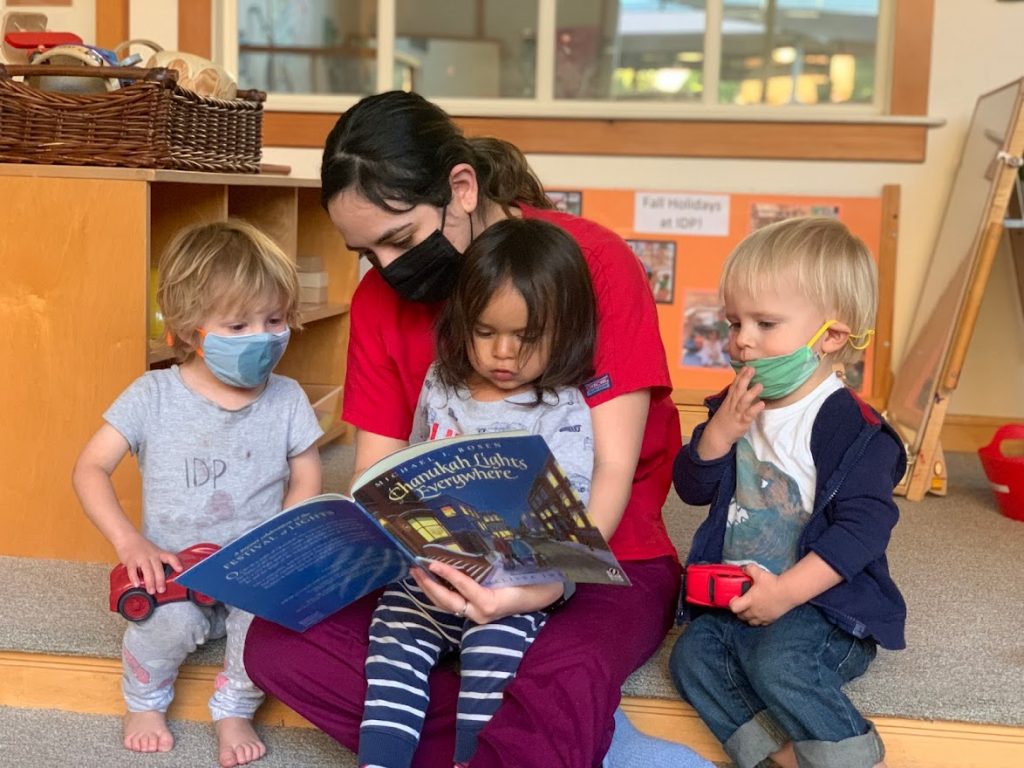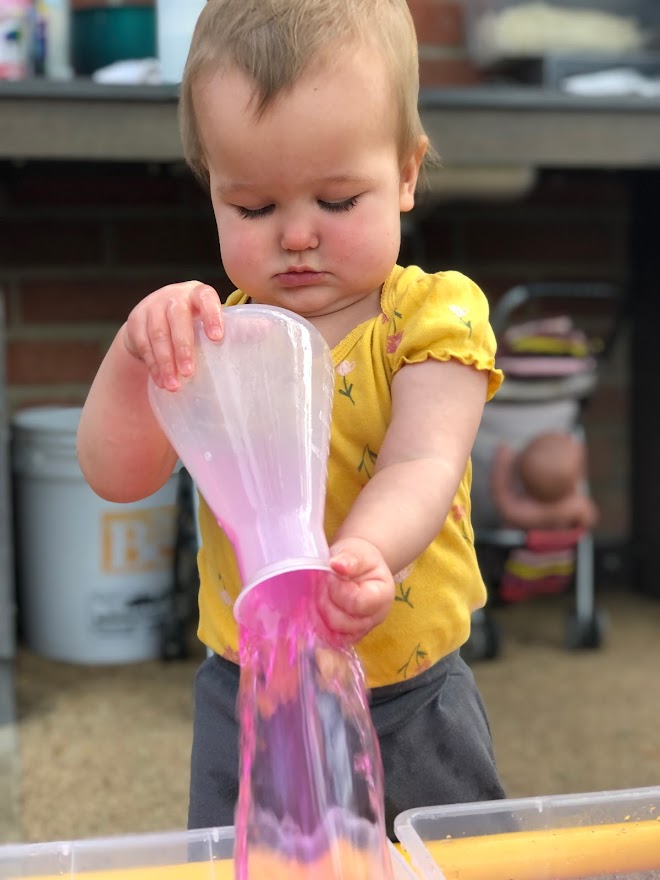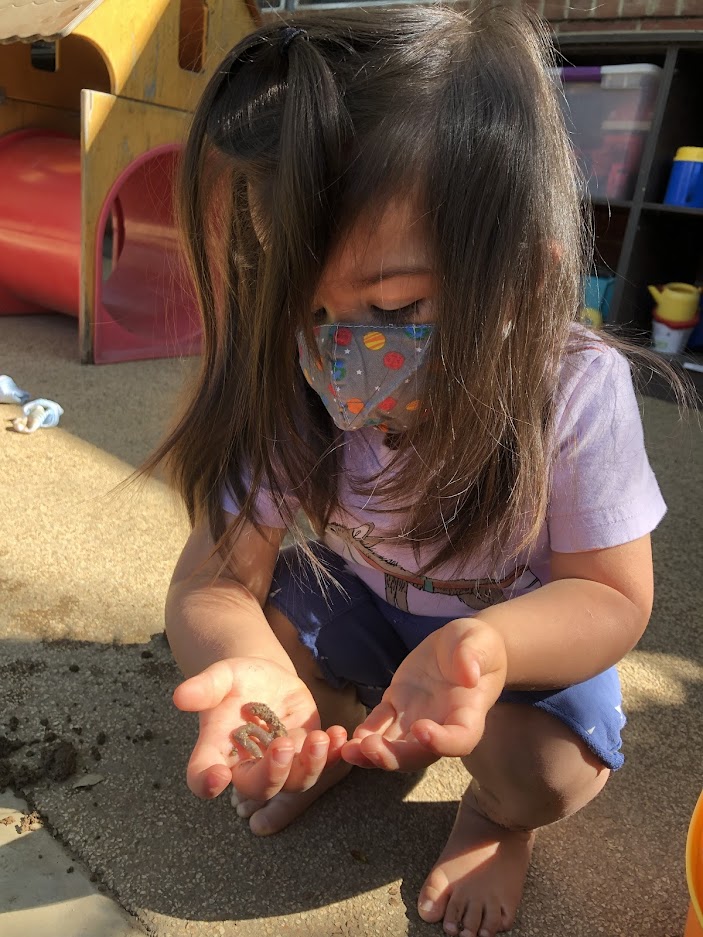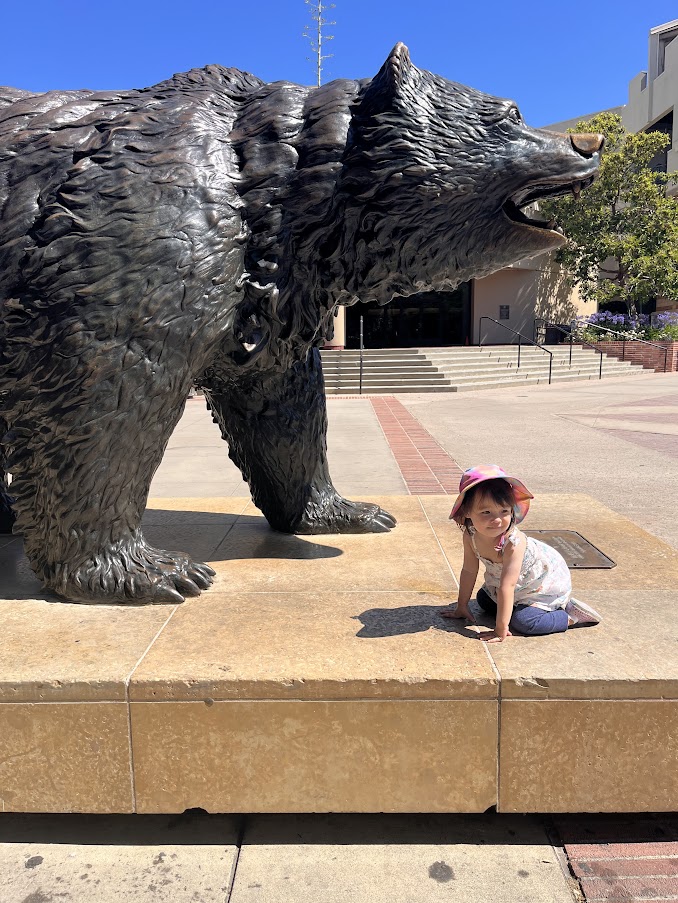An outline of the philosophy and goals of the UCLA Department of Psychology’s Infant Development Program.

Child development is often broken down into categories of cognitive, social, emotional, and physical, but since in practice these areas are inextricably intertwined, IDP focuses on all these aspects.
A child’s physical well-being and health are extremely important. The parents or caregivers must assure before all else that the child is safe and healthy. No development can occur without this. Moreover, the child has a very physical sense of the world. On such physical events as receiving nurturance, comfort, and safety and being held and cuddled a baby bases his development of trust and love, the beginnings of his personality and social development. The very small child’s cognition is also tied to the concrete and physical. He develops a sense of the physical order of the universe, and forms his ideas of the rules and categorization of time, space, and objects. Hence safety, predictability, and order of the child’s environment are particularly important.
This good physical support base for the child’s development is provided by people. People supply the nourishment, the protection, the holding, and the physical comfort that are so especially salient to the young child and infant. Caregivers who handle children well have developed an expertise in identifying a child’s needs, according to the child’s individuality, and fulfilling them quickly. They maintain an attitude of supporting the child’s development, not providing it.

Supporting the child’s development by responding to her needs extends beyond the bare physical necessities. The adult makes faces at the baby and talks to her, responding to her faces and “talk”. With an older child, the adult engages in more complex play and can help direct her to the solution of some problem she has encountered. All the while, the child is learning how she can control cause and effect in the physical and social universe. She also develops a sense of who she is, what qualities she has, through her interaction with what is outside herself. The emphasis again is on responsiveness rather than directiveness. This emphasis is not only founded on psychological research which indicates that the child has a strong natural motivation to understand and manipulate the things of her world, and to develop her potential skills; it is also founded on a non-selfish personal orientation, which looks to the child’s own needs and self-identification, as they come from herself.
The physical setup of the IDP, the play equipment and the curriculum, are according to the idea of providing opportunity for self-motivated growth. Play equipment is plentiful, various in color, texture, size and shape, and susceptible to varied and imaginative uses. The natural world–plants, earth, the water– provides endless and excellent play possibilities. Providing children with the opportunity for growth means providing them with the appropriate activities and equipment at the right time. A child who shows by his self-assigned tasks during play that he is on the verge of mastering relative sizes of objects can be offered a nesting toy, but in a simplified form, giving him only three containers, the smallest, the largest, and an in-between. Mastering the art of providing the next- needed task for the children takes training and experience. It requires scientific attention to the small interim steps in a developmental sequence. Attention to these steps, however, also produces a genuine appreciation, even awe, of the triumphs achieved by the child. So the adult is able to share with the child, not just through empathy but also with a knowledgeable appreciation, his delight in his discoveries and accomplishments.

Opportunity for growth also comes very much from the children’s spontaneous interactions with each other. Very young children show a high degree of social interest in each other, and anyone who has worked with them can cite examples of even a small baby “talking” with another child for a sustained period of time. This socialization can be encouraged by, first of all, recognizing its prevalence and importance. In small babies it is fostered by a general atmosphere of relaxation and enjoyment, and by free and warm interactions between babies and their adult caregivers. In older children, the above also holds true, but socialization can further be encouraged by presenting social opportunities: singing, music, story- telling, group snacks, housekeeping, building with blocks. Older children also need specific help with social skills. They need to be protected from situations which would lead to fights, such as pervasive over-excitement, tiredness, lack of toys, lack of adult attention, competitive games. They need to feel safe from being hurt or really exploited by another child. They need to be given the rules which people use to get along, such as waiting to use a toy until another child has finished with it, or sharing a toy, such as a box of crayons, which can be used by several children at the same time. Sometimes children will work out these kinds of rules by themselves; other times the rule has to be given by the adult. In any case, finding a way to get along with others while respecting their own wishes is the principal aim, rather than the rule itself. Finding this way takes years, and like other aspects of development, it takes an individual path for each child; it cannot be forced.

In sum, the basic principle of the IDP philosophy is that while children need a great deal of care and help, they are hardly helpless. They are largely self- motivated and self-directed in their development. They are naturally social, and naturally intelligent. They seek out tasks to develop their own skills. The adults’ role is to provide the trustworthy, secure physical and emotional base from which the children conduct their reaching out into the world, and to offer them appropriate stimulation to growth.
